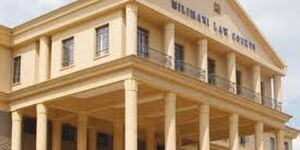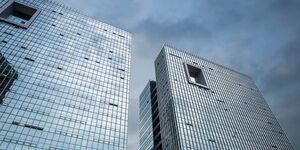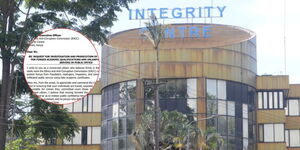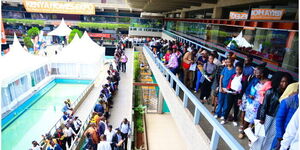Toa Tint (Lighten your skin) is a common phrase within Nairobi and its environs. A phrase that encourages women to bleach by slowing down melanin.
Skin-lightening products are banned in Kenya by the Kenya Bureau of Standards (KEBS), a government agency governing and maintaining the standards and practices of metrology.
However, traders located at River Road, Nairobi, have found ways to attract, maintain customers and generate untaxed millions from the illegal trade. Business people admitted that women are under pressure to conform to certain norms within the society that reportedly favour light-skinned women.
The aforementioned customers are either chasing after a job or are seeking to impress themselves or others (purportedly spouses) and many other unsubstantiated reasons.
“I’ve lightened my skin for 10 years. They’re brought in mostly from Kampala, some from Congo. Wherever we can get them from.
“My connections from working in this business for a long time means my buyers know what products I want to sell, and I don’t have to worry too much about the source,” a trader owning a stall at River Road told Quartz Africa.
Products she sells contain serum, alleging that they expedite the skin lightening process. Her clients are both female and male with the former being the majority, most of them in their early 20s.
“The colour of one’s skin is marketable, monetizable,” the trader added.
Some of the products cost Ksh300 while others cost up to Ksh100,000. For the expensive treatment sessions, one costs Ksh24,000 and individuals may require five sessions to see a significant difference in skin tone.
Some bleaching agents comprise hydroquinone, steroids, mercury, and hydrogen peroxide elements.
Others are a mixture of powerful antioxidants and amino acids that are naturally made in the body. Although some clinicians - who spoke with local dailies - stated that some products are safer to use but depend on an individual's body reactions.
Users can at times switch brands to change their skin colour. Mixtures, however, backfire. One cause of seeking alternatives is the unavailability of the first illegal product used as traders lean on selling items on demand at most.
Some products can lead to patches on user’s skins. However, there exist much worse effects such as cancer, liver and kidney damages and brain damage in newborns, according to the World Health Organisation.
KEBS Ban
KEBS stated that the prohibition was aimed at protecting unsuspecting consumers and discourage dumping of the products in the Kenyan market.
“They are therefore classified as drugs and should be applied only upon the advice and direction of a medical doctor.
“All skincare preparations like creams, lotions, gels, soaps, etc containing ingredients used in manufacturing skin-lightening products should be registered by the Pharmacy and Poisons Board of the Ministry of Health for medical use," KEBS stated in 2019.
Despite the ban, the items are still being sold illegally in Nairobi shops and even online on social media groups and pages.












